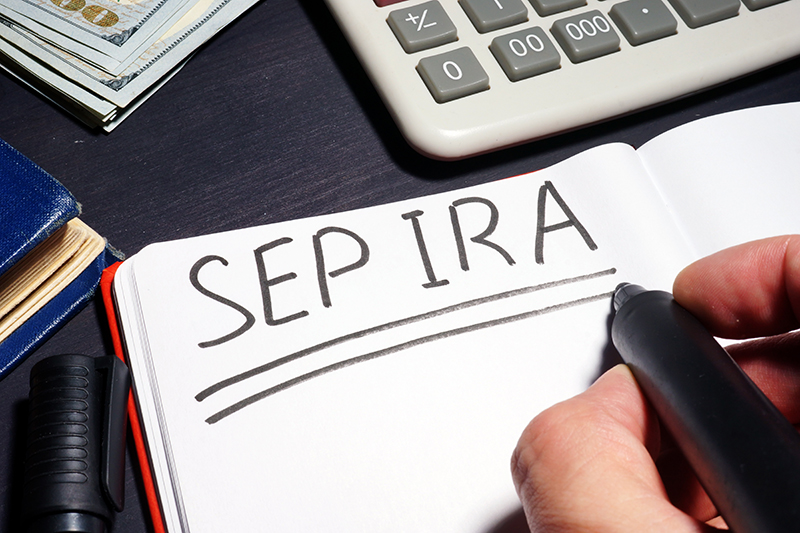Limited Partnership Interest in a SEP IRA
April 10, 2024 by Carolyn Richardson, EA, MBA
When shares of a limited partnership held in a SEP IRA are completely sold, are the 'gains subject to recapture as ordinary income', as shown on the attached sales schedule to the K-1, taxable on the 1040?
-Veronica, Texas
Hello Veronica,
Thank you for submitting your question regarding your SEP-IRA to our blogs. You asked if, when shares of a limited partnership that are held in a SEP-IRA are completely sold, whether the “gains subject to recapture as ordinary income” as shown on the K-1 are taxable on the 1040.
A SEP, or Simplified Employee Pension, is an employer plan that allows an employer to make deductible contributions to an individual retirement account on behalf of an employee. The IRA itself is owned by the employee, not the employer, and is a popular retirement plan for both employers and self-employed individuals. One advantage of a SEP is that the annual contribution limits are much higher than many other types of plans, such as Traditional or Roth IRAs, and 401(k) plans. For 2023, employers could contribute up to $66,000, or 25% of wages paid to the employee, whichever was lower. Self-employed individuals can also contribute up to $66,000 or 20% of net self-employment income after the deduction for one-half of the self-employment tax.
SEP IRA plans, like Traditional IRA or Roth IRA plans and many other retirement accounts, must have a trustee – generally a financial institution. These plans can invest in many types of investments with the contributed cash, such as stocks, bonds, mutual funds, and yes, partnership interests. While we typically see publicly traded partnership interests in these retirement accounts, there is no legal restriction that would stop the SEP from owning a limited partnership interest.
If the owner of the SEP account receives a K-1 for the partnership interest, is it reported on their individual 1040?
Generally, the answer would be “no,” but it’s important to make sure that the Schedule K-1 is issued in the name of the SEP account, since the SEP is the owner of the interest and not the individual. We have seen many instances where a partnership interest was owned by an IRA, but the Schedule K-1 was issued in the name of the individual account holder because the partnership was unaware that the owner was actually the IRA account. The name of the owner of the partnership interest should be something along the lines of “The John Smith IRA” or “The John Smith IRA FBO (for the benefit of) John Smith.” Your SEP IRA fiduciary can verify how the SEP is titled for you.
Any income or deduction items shown on the Schedule K-1, providing the SEP is the legal owner, are reported within the SEP. Because a SEP is a tax-deferred retirement account, no taxes are paid by the SEP when it receives income, whether that is from a partnership or another type of investment. So, whether the gain is “subject to recapture as ordinary income” or some other type of gain (such as dividends or capital gains), it makes no difference to the SEP’s accounting for this income. If you received the Schedule K-1 as the beneficiary of the SEP IRA, make sure your trustee receives a copy of the Schedule K-1 as well, as a limited partnership interest may be considered a “hard to value” asset held in the SEP – and updating the value of the asset every year is important.
Because of the tax deferred nature of SEPs, any distribution you take from the SEP is treated as ordinary income. This is true regardless of whether the income itself was some other type of income (such as capital gains) when the asset was held by the SEP. This is also true of any tax-deferred retirement account. For example, let’s say I own 100 shares of Apple stock in my SEP IRA, which was purchased by the SEP when Apple stock was trading at $50/share ($5,000 value). Years later, my SEP trustee decides to sell the Apple stock for $200/share ($20,000). That would result in a capital gain of $15,000, or $150/share. Since it’s in my SEP, it isn’t taxable to me at all right now. When I withdraw the $20,000 of proceeds from the sale, I would receive a Form 1099-R for the distribution from my trustee, and the distribution would be taxed as ordinary income to me, not as capital gains. If I owned the stock outright in a brokerage account, I would have to report the $15,000 gain on my 1040 in the year it was sold, but it would receive capital gains treatment rather than be treated as ordinary income.
We hope this clears things up for you but, again, make sure that the Schedule K-1 is being issued to the retirement account, not to you personally!
Sincerely,
Carolyn Richardson, EA, MBA





